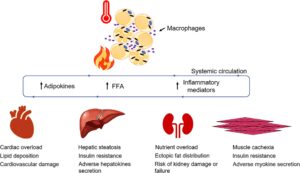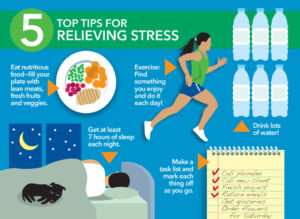Losing weight often feels like a race against the clock. In a culture where fast results are glorified, it’s tempting to try crash diets, extreme workout plans, and quick-fix supplements, all in the hope of shedding pounds as fast as possible. However, rapid weight loss approaches often do more harm than good. It’s important to understand why taking it slow and steady leads to healthier, more sustainable results. This article will explore the pitfalls of rushing weight loss and provide insights on how to achieve your goals while preserving your overall well-being.
The Downside of Quick Fixes

Unsustainable Results
Rapid weight loss typically relies on restrictive diets or intense exercise regimens that are hard to maintain. Once the momentum from these extreme methods wears off, many people find themselves slipping back into old habits. Crash diets, for instance, usually cut out entire food groups or severely limit calorie intake. While you may lose weight initially, your body eventually rebels due to nutrient deficiencies and fatigue, leading to binge eating and a spike in the scale.
Furthermore, extreme workout plans can be overwhelming. If you push yourself too hard too soon, you risk burnout or injury. This cycle of intense effort followed by burnout results in yo-yo dieting, where weight lost is quickly regained. In many cases, you may end up at a higher weight than before, making you feel even more discouraged.
Risk of Muscle Loss
When you lose weight too quickly, you often lose more than just fat—you lose muscle mass as well. Muscle is metabolically active tissue, meaning it helps your body burn calories even at rest. Crash diets or extreme calorie restriction can force your body to break down muscle for energy. Over time, this reduces your metabolism, making it harder to continue losing weight or maintain weight loss.
This loss of muscle can also affect your overall strength and fitness levels. Daily activities, such as climbing stairs or lifting groceries, become more challenging when your muscles are weakened. Sustainable weight loss plans, which balance diet and exercise, typically focus on preserving and even building muscle to keep your metabolism running optimally.
The Impact on Metabolism

Slowed Metabolic Rate
Metabolism is the process by which your body converts food and drink into energy. When you significantly reduce your calorie intake in an attempt to shed pounds quickly, your body senses a potential famine. As a survival mechanism, it slows down your metabolic rate to conserve energy. This is why some people hit weight-loss plateaus despite diligently sticking to extreme diets.
Over time, a sluggish metabolism makes future weight loss efforts more challenging. Your body becomes more efficient at storing energy, meaning you need fewer calories to maintain your weight. This adaptation can cause you to gain weight if you revert to your normal eating habits without gradually adjusting your calorie intake.
Hormonal Imbalances
Cutting too many calories or overexercising can throw your hormones out of balance. Hormones like leptin, ghrelin, and cortisol play a critical role in regulating hunger, stress, and fat storage. When you lose weight quickly, these hormones can shift dramatically, leading to increased hunger, cravings, and irritability. For example, leptin—a hormone that signals satiety to your brain—drops significantly after rapid weight loss, making you feel hungrier than before.
Hormonal imbalances can also disrupt your sleep, impair your mental clarity, and lead to mood swings. These negative effects can derail your weight loss journey, as poor sleep and high stress often drive overeating or comfort eating.
Mental and Emotional Health Concerns

Increased Stress and Anxiety
Rushing to lose weight often puts enormous pressure on your mental and emotional well-being. Strict diets, high-intensity workouts, and constant calorie counting can become overwhelming. This pressure can manifest as anxiety, stress, or guilt around food and exercise. In addition, rapid weight loss can trigger fear about regaining the weight, leading to obsessive behaviors.
Managing stress is crucial in maintaining a healthy lifestyle. Chronic stress not only affects your mental health but also impacts physical health markers like blood pressure and immune function. If your weight loss plan is causing you distress, it may not be sustainable or beneficial in the long run.
Poor Relationship with Food
Dieting extremes can damage your relationship with food. When you label certain foods as “bad” or completely restrict them, you’re more likely to experience intense cravings. If you give in, you might feel shame or guilt, creating a cycle of restrictive eating followed by binge episodes. This all-or-nothing mindset can harm your self-esteem and make weight maintenance difficult.
A balanced approach that encourages moderation and mindful eating is more beneficial. Instead of demonizing certain foods, focus on portion control and nutrient density. Recognize that it’s okay to enjoy an occasional treat as long as it fits within a generally healthy pattern of eating.
Slow and Steady Wins the Race

Gradual Lifestyle Changes
Rather than turning to drastic measures, opt for small, manageable changes that you can maintain. Swap sugary beverages for water or tea. Incorporate more vegetables into your meals, and cut back on processed snacks. A study-backed rule of thumb is to aim for a weight loss of about one to two pounds per week. This rate ensures you’re losing fat rather than muscle and helps preserve your metabolic health.
Additionally, regular, moderate exercise complements a balanced diet. Combine aerobic activities like brisk walking or cycling with strength training to boost muscle mass and metabolism. Consistency over time—rather than intense, short-lived efforts—leads to better overall results.
Long-Term Habits and Maintenance
One major benefit of gradual weight loss is that it fosters long-term habit formation. By adopting healthier eating patterns and an active lifestyle, you’re more likely to keep the weight off. This approach also reduces the risk of nutrient deficiencies, metabolic damage, and mental burnout.
Focus on understanding your body’s signals of hunger and fullness. Eat mindfully, savoring your meals without distractions such as TV or smartphones. Practice portion control and keep track of how you feel after different foods. Over time, these mindful practices become second nature, making maintenance easier and more enjoyable.
Conclusion
Rushing weight loss can backfire in numerous ways—metabolic slowdowns, muscle loss, and mental health strains, to name just a few. The allure of quick results might tempt you to try extreme measures, but these approaches rarely lead to long-term success. Instead of viewing weight loss as a race, think of it as a marathon where consistent, sustainable changes set you up for lasting victory.
A better path involves gradual adjustments to your diet and exercise routine, ensuring you maintain muscle mass, support a healthy metabolism, and nurture a positive relationship with food. This measured strategy not only helps you reach your weight loss goals but also sets you on a healthier, happier track for life. Remember: slow and steady truly wins the race when it comes to sustainable weight management.
If you are looking for steady and effective weight loss method, try this…
